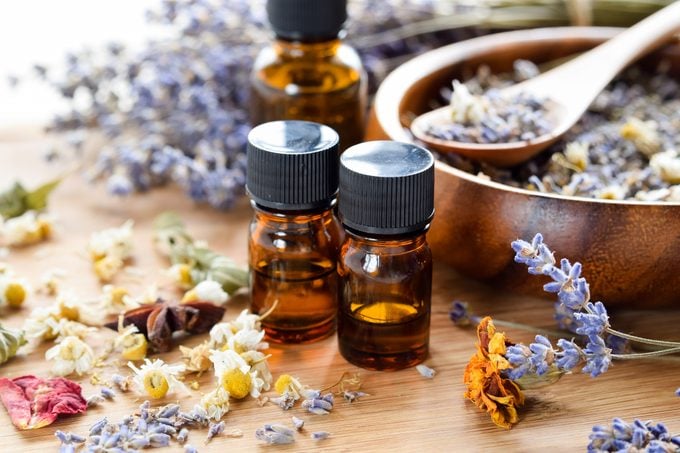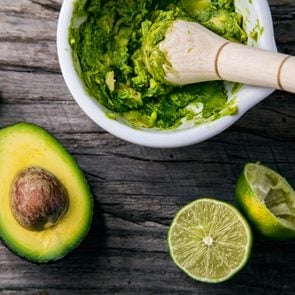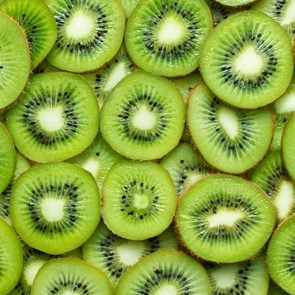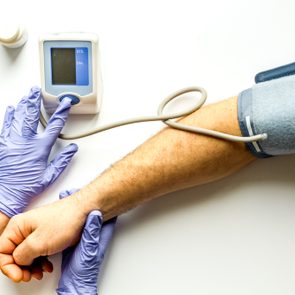Are There Essential Oils for High Blood Pressure? Here’s What the Experts Say
Updated: Oct. 10, 2022
Essential oils may provide health and wellness benefits, but when it comes to high blood pressure, it's complicated. Here's what to know.
Essential oils for high blood pressure
From lavender and ginger to rose and ylang-ylang, essential oils and their aromas are believed to offer health and wellness benefits. Lower blood pressure could be one of them. A small body of research suggests that inhaling the aromas of certain essential oils may help lower blood pressure.
High blood pressure (hypertension) occurs when the force of blood flowing through your arteries is too high. When left untreated, high blood pressure can damage your arteries and lead to heart attack, stroke, kidney disease, and vision problems.
Your blood pressure is given as two numbers. Systolic pressure, the upper number in a reading, is the pressure when your heart pumps blood through your body, while diastolic pressure, the lower number, is the force when your heart is at rest and filling up with blood. A blood pressure of less than 120 millimeters of mercury (mm Hg) systolic and less than 80 mm Hg diastolic is considered normal. High blood pressure, or stage 1 hypertension, is defined as 130-139 over 80-89 mm Hg, and stage 2 hypertension is at or above 140/90 mm Hg.
The first-line treatments for high blood pressure are typically lifestyle changes such as eating a low-salt diet, exercising, drinking alcohol only in moderation, and learning how to cope with stress and stressors. Many people also need medications to get their numbers into the normal range and lower their risk for heart attack, stroke, and other problems.
Essential oils are not a substitute for any of these tried-and-true methods, cautions Michael Goyfman MD, director, clinical cardiology, Long Island Jewish, Forest Hills, New York. “If someone has high blood pressure at the level that medication is required, the effects of the oils are essentially insignificant compared to the potency of medications for hypertension,” Dr. Goyfman says.
Essential oils for stress reduction
Stress can have direct and indirect effects on your blood pressure, and aromatherapy with essential oils can help lower your stress levels. Stress can trigger the release of cortisol and other hormones that raise heart rate and blood pressure. It can also cause you to overeat and make unhealthy choices such as drinking too much alcohol and smoking, which will increase blood pressure. (Learn more about stress and high blood pressure.)
“If you smell essential oil and feel happy and peaceful, such a signal will be transmitted from the nose to the brain through nerve fibers and then to the autonomic nervous system,” explains Kai-Jen Chuang, professor, public health, Taipei Medical University, Taiwan.
The autonomic nervous system activates the parasympathetic nervous system, which acts like a brake and calms your body, he says. (Try these mood-lifting essential oils.)
Essential oils for blood pressure reduction
“Essential oils have an adjuvant or complementary role in helping to lower blood pressure,” says Dawn Langley-Brady, registered nurse, certified clinical aromatherapist, and nursing instructor, at Augusta University College of Nursing, Augusta, Georgia. That means you might consider trying them in addition to—rather than a replacement for—proven methods for lowering blood pressure, like exercise, diet, or medication.
Specifically, she says, there is some evidence that suggests essential oils such as ginger, black pepper, and turmeric may help to reduce blood pressure by widening the arteries and/or decreasing inflammation. Furthermore, she says, essential oils that may help reduce blood pressure by activating the parasympathetic nervous system response include Roman chamomile, ylang-ylang, neroli, bergamot, lavender, rose, and clary sage.
In a small study of 29 men, half of the men spent one hour in a room with the scent of ylang-ylang and the other half spent the same time in a fragrance-free room. The scent of ylang-ylang seemed to have a sedative effect on the men, who also had a slightly lower blood pressure and heart rate than their counterparts in a room with no fragrance. In the ylang-ylang group, blood pressure dropped from 115/66 to 97/59 compared with 113/66 to 111/59 in the control group. The study was published in 2013 in the Journal of Exercise Rehabilitation.
Meanwhile, the scent of lavender is linked to calmness and tranquility. In a study of 126 people with dental anxiety, half inhaled lavender oil before wisdom tooth surgery and half did not. People who inhaled lavender oil felt less anxious and had lower blood pressure than control groups of patients who didn’t inhale lavender. More than 79 percent of study participants enjoyed the scent and most said they would sniff lavender again next time they felt anxious, according to the 2019 study published in Physiology & Behavior.
(Also, anxiety can cause high blood pressure.)
It’s important to note that both of these studies were relatively small and research on the effects of essentials oils and high blood pressure is limited.

Best way to use essential oils
The best way to use essential oils is through an individual inhaler, Langley-Brady says. “This personal inhaler can be in the form of an aroma stick or aromatherapy jewelry (e.g. necklace),” Langley-Brady says. If you don’t have a personal inhaler, place essential oil drops onto a cotton ball or gauze pad and inhale. You can also use an essential oil diffuser, which usually involves a mix of the essential oil and water, and is then is released through the air.
“Drops of essential oils can be added to lotion or massage oil and applied to the skin,” she says. Langley-Brady also notes that using essential oils with other complementary methods of treatments such as massage, meditation, and music—what she calls a “multi-modal approach”—may further reduce stress and subsequently blood pressure.
Essential oils can be highly concentrated, and some can even be toxic. If you’re thinking of using the oils on the skin, opt for diluted oils to avoid any possible skin irritation or other issues.
Side effects of essential oils
The safety and side effects of essential oils can vary from person to person. As previously mentioned, the safest way to use essential oils is through inhaling the scent. Side effects associated with this use include headache, cough, shortness of breath, nausea, and burning of the eyes. However, these effects typically go away once you can no longer smell the scent.
Topical application is also considered generally safe. But, warns Langley-Brady, skin sensitivities may occur as some can cause reactions like skin irritation, burns, and contact dermatitis, where you get a red, itchy rash. Before trying a new essential oil, test a small amount of the diluted oil first to see how your skin reacts. (Here are more essential oil safety tips and a beginner’s guide to essential oils.)
Many essential oils can be poisonous if swallowed, warns the National Capital Poison Center (NCPC). “Aspirating an essential oil can cause pneumonia; this can happen if someone tries to swallow it, but chokes so that a little goes into the lungs,” the NCPC states. If you or someone in your household swallows an essential oil, call poison control at 1-800-222-1222.
Langley-Brady cautions that essential oils should not be used by or on infants, pregnant women, or frail, older people. (Here are more essential oil safety tips.) Although some people take essential oils internally, because of the wide variety of oils and varying levels of concentration and toxicity, it’s best to do this only under the supervision of an integrative medicine practitioner or other qualified expert.
Buyer beware
Keep in mind, essential oils are not regulated by the U.S. Food and Drug Administration. Currently, there’s also no standard or certifications for essential oils.
If you decide to purchase essential oils, make sure you purchase oils that come in dark amber or cobalt blue bottles. That protects them from light which can make them lose their fragrance and any therapeutic qualities more quickly.
Look for the common name and Latin name of the oil. For example, if you’re buying lavender (the common name), a high-quality bottle will also include one of two of the Latin names: Lavandula angustifolia or Lavandula latifolia. This helps ensure you’re getting the real thing.
Essential oils stored in plastic bottles can lead to contamination if the oils dissolve. To prevent spoiling, make sure they’re stored in a cool, dark place. Most essential oils have a shelf life of about one year.
(Here’s more on what to know before buying essential oils.)
The last word
Essential oils are relatively safe and can help reduce stress levels alone or in combination with other relaxation techniques. This may have spillover benefits on high blood pressure. Aromatherapy should not take the place of a heart-healthy diet, regular exercise, or medication if you have high blood pressure.
“If people are being treated for hypertension, they should NOT discontinue blood pressure medication in lieu of essential oils,” Langley-Brady says. “If someone is interested in using essential oils to manage blood pressure, they should reach out to a qualified practitioner such as a certified clinical aromatherapist or a board-certified holistic nurse or integrative medicine practitioner who has been trained in clinical aromatherapy,” she says.



















